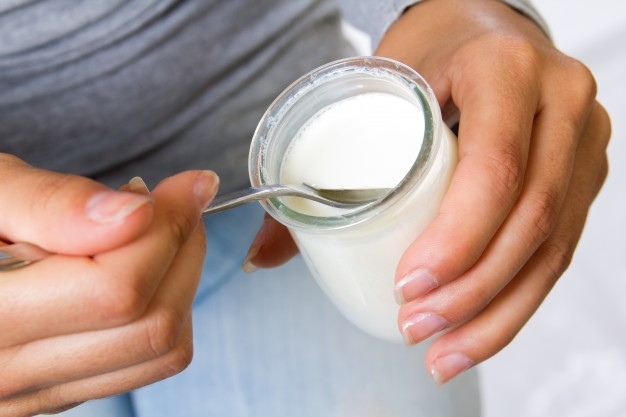
Kefir and yogurt have a similar sour, fermented taste, but there are many differences between them.
These differences include:
Production
For centuries, people have made kefir using kefir grains and cow’s milk. It is also possible to make it with goat or sheep milk. Kefir grains resemble tiny cauliflower florets.
Manufacturers add the grains to the milk to ferment it, then they remove them. The remaining product is kefir. The grains are reusable in the next batch.
They can also make kefir dairy-free, by fermenting the grains with water or coconut water and sugar.
On the other hand, commercial producers make yogurt by heating a yogurt mix, then cooling it and adding the helpful bacteria.
Current standard procedures and regulations for yogurt production require the addition of both Streptococcus thermophilus and Lactobacillus bulgaricus as the starter culture.
This is the best starter culture due to the symbiotic relationship between the two species.
Bacteria and yeasts
Both kefir and yogurt can help populate the gut with good bacteria. The difference is that kefir contains a wider variety of bacteria, and it also contains beneficial yeasts.
Two of the most common beneficial yeasts in kefir are Saccharomyces cerevisiae and Saccharomyces unisporus.
According to research, kefir may:
- have antimicrobial and antifungal properties
- help the immune system
- be anti-allergenic and antitumor
- be beneficial for lactose malabsorption
However, the variation in microorganisms in each batch make it difficult to verify the health effects of different products.
Yogurt often contains the probiotics Lactobacillus acidophilus and Bifidobacteria. Probiotics are bacteria that can be beneficial to a person’s health. Kefir also contains probiotics, as well as yeasts.
Research suggests that probiotics may help treat or prevent:
- constipation
- respiratory tract infection
- ulcerative colitis
- some infections that cause diarrhea, such as Clostridium difficile
- diarrhea from taking antibiotics
- allergic rhinitis
- necrotizing enterocolitis, which is a serious condition in infants
- Helicobacter pyloriinfections
It is important for probiotics to survive the acidic environment in the gut. The authors of a 2017 review suggest that if Bifidobacterium strains are in fermented products such as kefir and yogurt, they should be acid resistant.
A 2019 study of people with metabolic syndrome who drank kefir for 12 weeks found some favorable changes to their gut bacteria.
However, the authors suggest that research into the probiotic potential of the fermented drink is limited at the moment.












